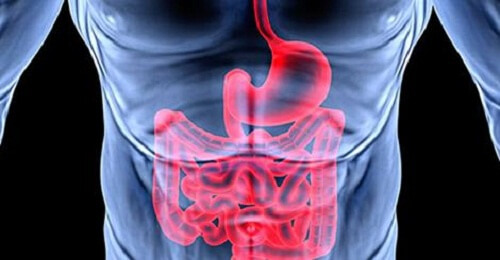Poor Digestion and Emotional Problems


Reviewed and approved by the doctor Maricela Jiménez López
When you’re dealing with poor digestion, like heartburn, acid reflux, gas, bloating, or constipation, the first thing you focus on is our diet. Diet has a link to most health problems, especially digestive problems. But you should also remember that emotional problems can be an important trigger of poor digestion and imbalances.
In this article, we’re going to explain the relationship between the digestive system and emotions. We’ll also show you some natural remedies and give you some simple tips to help your improve your digestive health and your quality of life.
Poor digestion and emotional problems: a vicious cycle
Our brains are connected to our digestive system. They communicate with each other, and they depend on each other for good health. So, if your brain sends a negative nerve stimulation to your digestive system, it will have a negative effect on your digestion. Or, if you haven’t properly digested your food, it could affect your mood.
This might seem complicated, but there’s an easy solution: a positive mental state will help digestion and good digestion will contribute to a balanced mental state.

Stress and digestion
Who hasn’t felt like their stomach was upset after an unpleasant experience at some? Our body still has very basic survival instincts. It’s clear that the digestive system isn’t a priority in difficult situations. Like animals, in emergencies our body gets ready to run and puts other bodily functions (like digestion) second.
Read more:
Diseases that Can Hide behind Indigestion
So, you might realize that as long as the stress (which your body treats as an emergency), goes on, your could start to have digestion problems. If you can’t remove the stress, your body will continue to push digestion and other important bodily functions aside.
What are the emotions which affect us?
Along with stress, other emotions that can easily affect your digestive system include:
- Anxiety
- Sadness
- Excitement
- Anger or Rage
Not everyone who experiences these strong emotions will have poor digestion. But, if you do, you should look out for these emotional responses as one of the problems causing your poor digestion, especially if you’ve already tried to fix your diet. It might be the key to treating the imbalance.

The most common disorders
The most common digestive problems that sometimes have a psychosomatic origin are the following:
- Dyspepsia or indigestion
- Irritable bowel syndrome or colitis
- Gastritis
- Hiatus hernia
- Gastric ulcers
You might like:
Natural remedies to deal with poor digestion caused by emotional problems
Now that you know there are many potential causes of digestion problems, you should also find ways to treat potential emotional factors. It’s best to see a holistic therapist who will take into account all the different aspects of a disease (diet, lifestyle, psychology, etc.). But you can also do some research and try natural remedies. Here are some ideas:
- Medicinal plants with relaxing properties that can help you regulate your nervous system: the best known are lemon balm, passionflower, linden, and valerian root.
- Natural supplements and foods that balance the nervous system: rice and whole grains, brewer’s yeast, nuts, green vegetables, dates, garbanzo beans (chick peas), and bananas.
- Avoid foods that stimulate, irritate, or alter your nervous or digestive system: roasted coffee, soda, guarana, alcohol, white sugar and food additives (preservatives, colorings, and flavorings).
- Get physical exercise at least three times a week. You can do intense workouts or something a little less strenuous, depending on how you feel.
- Immerse yourself in nature at least once a week.
Eat in peace
If you’ve noticed that your emotional issues tend to show up in the form of poor digestion, you should learn some tricks to help you sort your digestive problems out.
When you eat, you should meet these basic requirements:
- Eat alone or with a good friend.
- Don’t talk about overly important or unpleasant topics.
- Avoid eating in places like your job or other places where you don’t feel relaxed.
- Don’t force yourself to eat if you don’t feel relaxed. It’s better to wait a little bit.
- Don’t eat in a rush, while standing, or while doing other activities.
Images courtesy of Alessandra, Marketing Deluxe and Relaxing Music.
All cited sources were thoroughly reviewed by our team to ensure their quality, reliability, currency, and validity. The bibliography of this article was considered reliable and of academic or scientific accuracy.
-
Camilleri, M. (2009). Serotonin in the gastrointestinal tract. Current opinion in endocrinology, diabetes, and obesity, 16(1), 53.
-
González, S., Moreno-Delgado, D., Moreno, E., Pérez-Capote, K., Franco, R., Mallol, J., … & Ferré, S. (2012). Circadian-related heteromerization of adrenergic and dopamine D4 receptors modulates melatonin synthesis and release in the pineal gland. PLoS biology, 10(6), e1001347.
-
Korver, D. R. (2006). Overview of the immune dynamics of the digestive system. Journal of applied poultry research, 15(1), 123-135.
-
Rao, S. S. (1997). Belching, bloating, and flatulence: how to help patients who have troublesome abdominal gas. Postgraduate medicine, 101(4), 263-278.
This text is provided for informational purposes only and does not replace consultation with a professional. If in doubt, consult your specialist.








